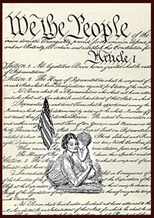
The Good Citizen: the "social contract" reconsidered
Spring 2003
Project Presentations: schedule
The web-x sites are now available for posting the revised Project Descriptions. Please turn in two hard copies, as well.
Wednesday, June 4, 9-12, Project Presentations will be in Library 4300.
Thursday, June 5, 10-1, Project Presentations will be in LH 3.